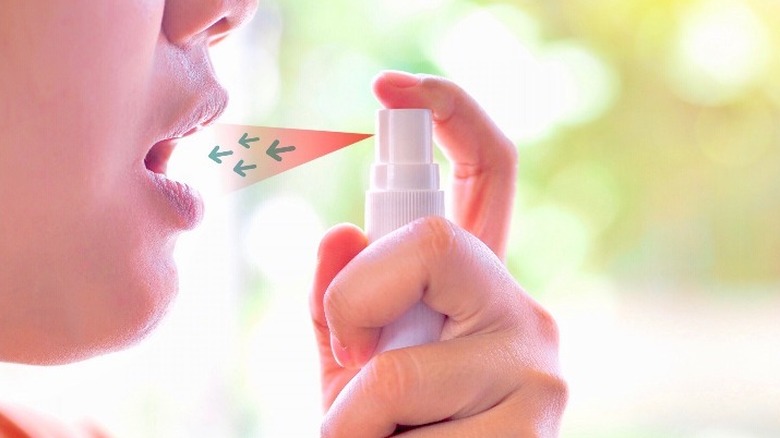Everything You Need To Know About Sublingual And Buccal Medications
Do you take a prescription medication? A national survey of nearly 2,000 United States adults found that an astonishing number of adult Americans — more than 50% — consistently take prescription medications (via Consumer Reports).
When it comes to this trend, the U.S. is a global leader in consumption. In addition to prescription medications, over-the-counter (OTC) drugs, dietary supplements, and vitamins are making their way into the everyday American lifestyle (via Consumer Reports). You might wonder what the harm is; doesn't all of this access to drugs make a healthier America?
According to World Health Organization, medication errors — mistakes related to the consumption, distribution, and prescription of medication — harm over one million Americans every year. By comparison, more conservative estimates place that number in the range of hundreds of thousands (via the Mayo Clinic).
Perhaps medication errors occur because of the sheer volume of available drugs and delivery methods. Healthline says that there are over a dozen different "routes of administration" for medications. Here's everything you need to know about two methods of delivering medicine by way of the mouth.
The pros and cons of buccal and sublingual medications
According to Online Etymology Dictionary, the word bucca is Latin for "cheek." Therefore, the adjective buccal means "pertaining to the cheek." Buccal medications are placed in the middle of the cheek and the gums (via Encyclopedia.com).
On the other hand, the preposition sub is Latin for "below," and lingual is Latin for "or pertaining to the tongue" (via Online Etymology Dictionary). Per Encyclopedia.com, sublingual medications are taken under the tongue. According to Healthline, both buccal and sublingual medications are available in a variety of forms ranging from films to sprays and tablets.
There are pros to these methods of delivery. When taken properly, both buccal and sublingual medications are fast acting and start working within about five minutes (per Encyclopedia.com). If you have issues swallowing pills, then buccal or sublingual medications may be for you. The Merck Manual states that buccal or sublingual medications do not need to be swallowed. Both types of medication break down and enter the bloodstream while avoiding the digestive system, so you might not need as strong of a dose (via Healthline).
However, there are a few cons as well. According to CareFirst Specialty Pharmacy, these types of medication can aggravate open sores in your mouth. Additionally, consuming food or water — even smoking — can reduce the efficiency of the medication.


